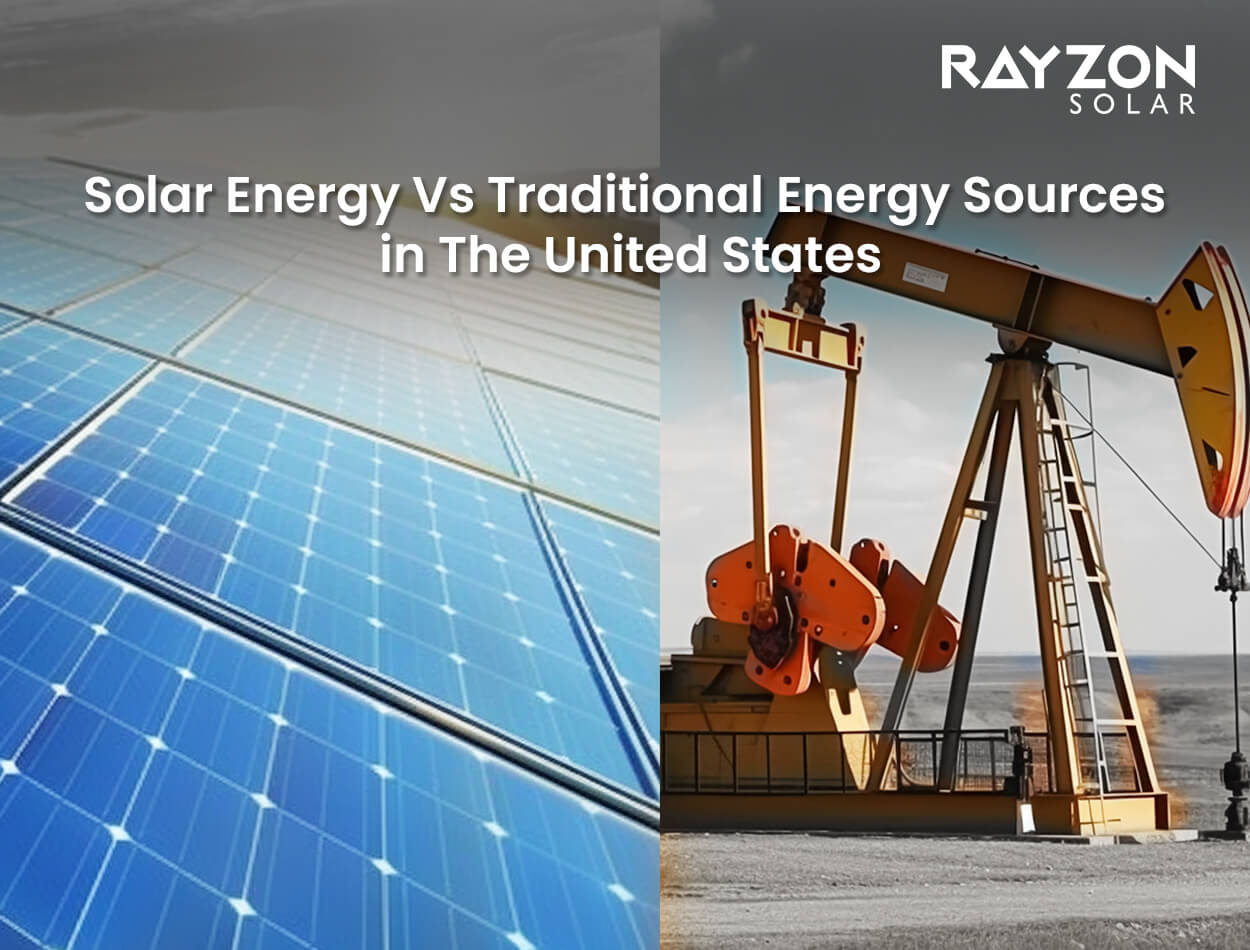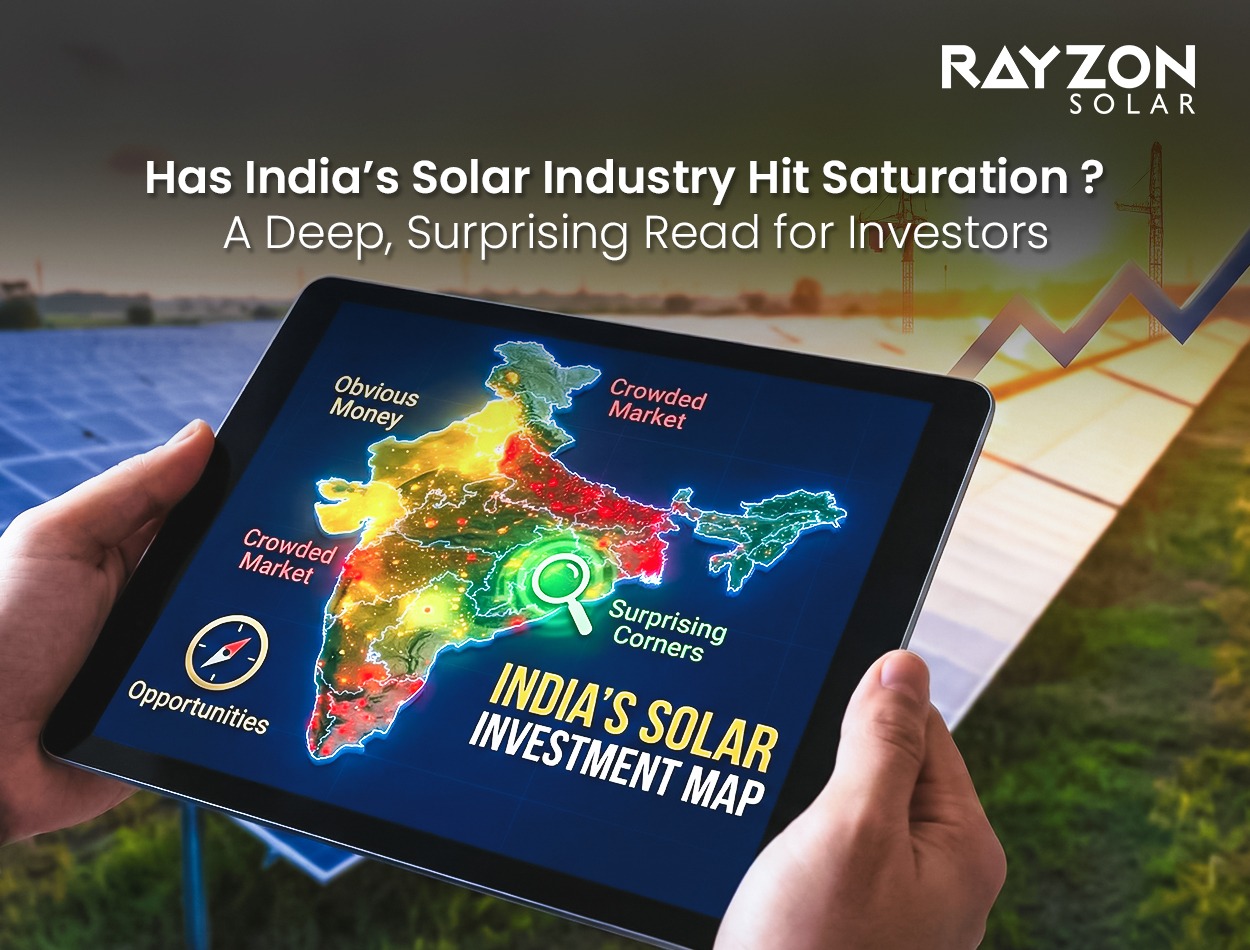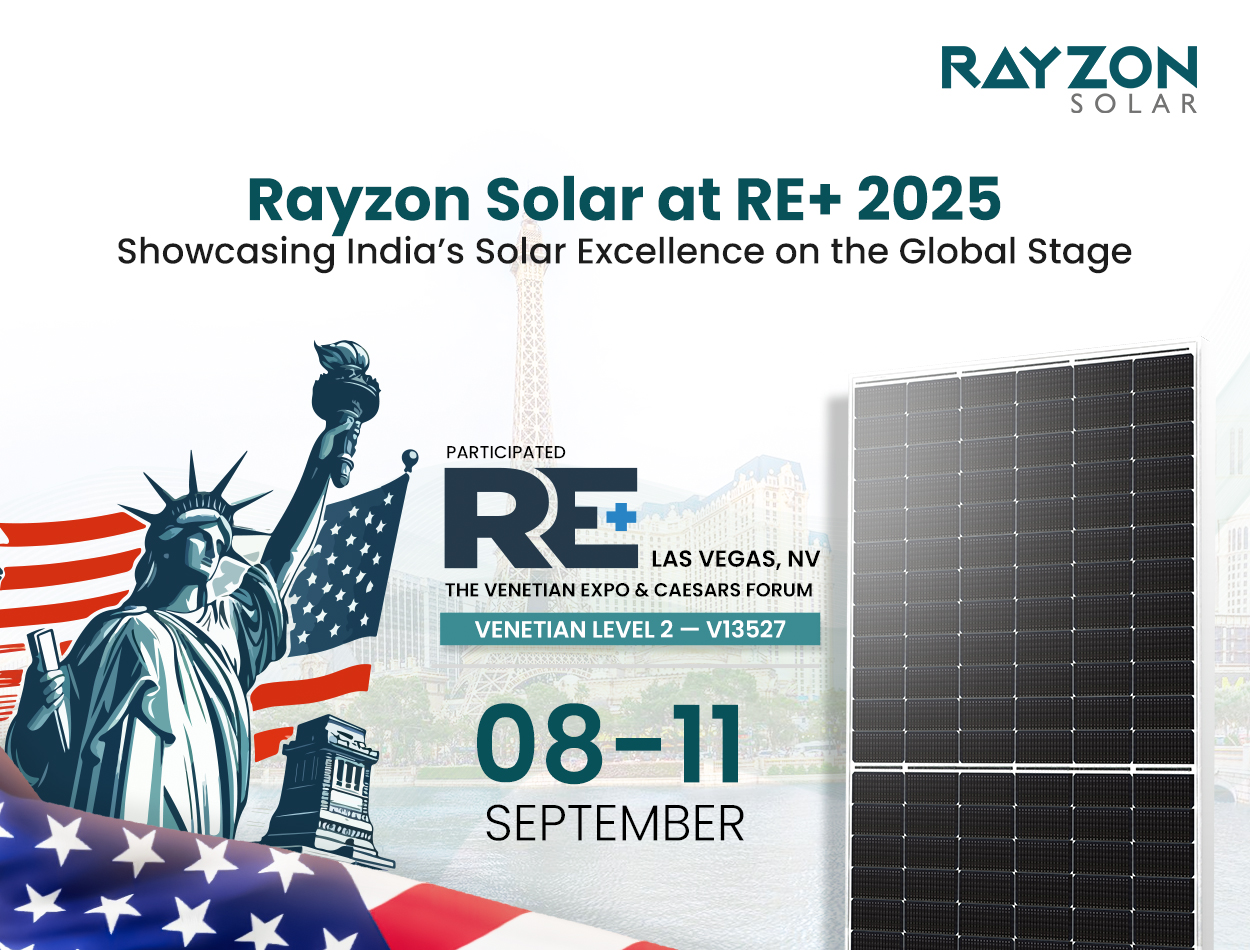
Cost Analysis: Solar Energy Vs Traditional Energy Sources in The United States
Rayzon Solar, as a solar energy company in the United States, plays a crucial role in the ongoing transition towards renewable energy in the United States. Our commitment to innovation, quality, and sustainability contributes significantly to the cost analysis of solar energy versus traditional energy sources.
The conflict between conventional fossil fuels and renewable alternatives has taken center stage in the dynamic field of energy production. In the middle of this heated discussion, solar energy especially that promoted by top solar panel manufacturers in the US market as Rayzon Solar, one of the leading producers of solar panels in the US market stands out as the front-runner since it makes promises of sustainability and environmental care. But how does solar energy compare, particularly in terms of cost, to more conventional electricity sources in the US? Let's start a thorough cost analysis of this complicated problem and determine the best course of action.
Cost Analysis: Difficult Issue and Determine the Best Course of Action The Battle: Traditional Energy vs. Solar Energy
The frequent issue between conventional power sources like coal, natural gas, and oil and the rapidly expanding renewable energy industry led by solar power is at the core of the energy crisis. Traditional energy sources with their well-established infrastructure and economies of scale have long dominated the world's energy output. But worries about pollution, climate change, and the decrease of natural resources have encouraged the search for greener substitutes, and the top solar panel manufacturer in the US market Rayzon Solar’s, solar energy has emerged as a glimmer of hope in the present time.
You Can Read This: Benefits Of Solar Energy: A Comprehensive Guide By Rayzon Solar
The Cost Difficulties: Revealing the Elements
Analysing the cost dynamics of energy production requires taking into account several different aspects that affect the total cost. The upfront costs associated with traditional sources are mostly related to the mining, shipping, and burning of fossil fuels as well as expenditures associated with maintaining infrastructure and cleaning up the environment. On the other hand, investments in solar energy include the purchase, setup, and upkeep of photovoltaic (PV) panels, inverters, and associated hardware.
Analysing Solar Costs
Potential adopters are often dissatisfied with the initial cost necessary for solar energy systems. Even if the cost of solar panels and related equipment makes up a large amount of the initial outlay, United States solar panel manufacturing companies like Rayzon Solar, Solar Power's technological innovations, and declining costs have made solar installations more and more accessible. Additional factors that lower prices include economies of scale, improved installation procedures, and falling soft expenses.
The Long-Term Advantage: Solar's Savings Potential
Although solar energy may seem expensive at first, it has unmatched long-term savings potential. Solar energy provides a steady, predictable supply of electricity, in contrast to conventional energy sources which are prone to unpredictable fuel prices and market swings. Installing solar panels protects consumers from growing energy costs and decreases their dependence on fossil fuels by producing electricity at no constant fuel cost.
Sunlight: The Ultimate Renewable Resource
The use of sunshine, a plentiful and free resource, is the foundation of solar energy's economic viability. Sunlight doesn't need to be purchased or processed, unlike finite fossil fuels which need expensive extraction, shipping and burning procedures. Solar energy systems, like solar power companies in the US, such as Rayzon Solar Power those offered, reduce operating costs by utilizing this almost infinite resource hence lowering the total cost of producing electricity.
Rewards and Returns: Increasing Solar Adoption
Furthermore, government grants, tax breaks and refunds are essential in increasing consumer access to and appeal for solar energy. Solar adoption is encouraged by federal investment tax credits (ITC), state-level incentives, and net metering programs, which reduce upfront costs and encourage the return on investment (ROI) for solar installations. In addition, financing choices including power purchase agreements (PPAs) and solar leases provide different solutions to get solar energy with less initial spending of funds.
The Bottom Line: Solar's Bright Future
In conclusion, a comprehensive cost analysis highlights the remarkable long-term savings and financial benefits that solar power delivers, even though the upfront expenses of solar energy installations may be a barrier to entrance for some. Solar energy is an affordable and environmentally friendly way to meet our energy needs since it maximizes the sun's plentiful energy while reducing our need for finite fossil fuels. Solar energy looks to have a brighter future in the US and abroad as long as technological breakthroughs keep bringing down costs and governmental support encourages solar adoption.
Embracing the Solar Revolution
The time to embrace the solar revolution and realize the enormous potential of renewable energy is now, as we find ourselves at a crossroads in the energy transition. We can set the path for future generations to enjoy a wealthier and more sustainable future by harnessing the power of sunshine to promote energy independence, reduce climate change, and boost economic growth. Together, let's embrace solar energy powered by solar panel companies in the US as Rayzon Solar as the cornerstone of our energy portfolio, and show the way toward a more environmentally friendly and clear future.
As a sustainable and affordable replacement for traditional energy sources in the US, solar energy has a lot of potential, the cost analysis concludes. We may anticipate more cost savings and a rise in the use of solar power in the commercial, industrial, and residential sectors as the solar business develops and becomes more innovative. Adopting solar energy helps us save money and cover the way for future generations to live in a cleaner, greener world.
You Can Also Read This: Rayzon: Pioneering Sustainable Solutions For A Greener Future



